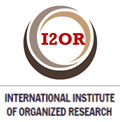Questionnaire for the identification of Occupational Health information
Keywords:
information management, questionnaire, identification, occupational health, validation.Abstract
Introduction: The interest for the information and knowledge is every time bigger increasing the social demand of orientation to confront the new and complexes global problems and the interest toward its management and solution. The best strategy to achieve the diffusion and impact of the professional and scientist activity is to publish works and informative contents and to share them through the open science. Intend an exploratory investigation related with the Occupational Health using a questionnaire for the identification of the general information existent on this thematic. Objective: Validation of the questionnaire for the general identification about Occupational Health. Method: A preliminary version of the questionnaire was elaborated, divided in sections according to the informative interests demanded by the investigation. It was undergone to the judgment of nine experts using the properties of Moriyama to validate for items and the calculation of concordance and analysis of content validity for the general validation. Results: All the items reached very superior values those accepted when applying the properties of Moriyama and in the validity of their contents in each dimension and in the total values. In the general valuation of the test was observed the majority agreement of the experts with the approaches to measure. The half agreement of the experts showed little deviation and in six of the seven variables they had good level of acceptance, because only in the variable Opportunity the consent level was lightly inferior to the accepted. Conclusions: An instrument was obtained and validated by means of the application of three methodologiesDownloads
References
González E. Información, conocimiento y creativi-dad. Un enfoque desde la complejidad. La Habana, Cuba: Editorial de Ciencias Médicas;2015
Aleixandre R, Ferrer A, Alonso A, Vidal A, Domínguez RL, González de Dios J. Comunicación científica (XXVI). Cómo aumentar la difusión y el impacto de los trabajos pediátricos participando en la ciencia abierta. Acta Pediatr Esp. 2015;73(8):203-10
Núñez IA. El Tao de las ciencias y profesiones de la información. La tríada esencial: información-comunicación-conocimiento. ACIMED. 2006;14(3): Disponible en:
http://bvs.sld.cu/revistas/aci/vol14306/aci12306.htm [Consultado: 10 de febrero de 2019].
Gómez FH. Reflexión Ética: La relación conflictiva entre salud y trabajo. Revista Colombiana de Salud Ocupacional. 2014;4(4):5-11. ISSN: 2322 634X.
López J. Apuntes para un ensayo histórico-sociológico de la medicina del trabajo (de los tiem-pos primitivos a la Revolución Industrial). Rev Cu-ba Salud Pública. 2014;40(2):296-312. Disponible en: http://scielo.sld.cu/scielo.php?script/sciarttext/pid/S0864-34662014000200016/Ing/es/nrm/iso/tlng/es [Consultado 18 febrero 2019].
Epidemiología ocupacional. Disponible en:
http://ingridpulido.blogspot.com/ [Consultado 18 junio 2019].
Comisión sobre determinantes sociales de salud. Subsanar desigualdades de una generación: Alcan-zar equidad sanitaria actuando sobre las determinantes sociales de la salud OMS;2009. Disponible en: http://www.who.int/social_determinants/thecommission/finalreport/es [Consultado 18 julio 2019].
Thielmann K, Illnait J, Clark I. Determinantes indi-viduales y sociales de la salud. Rev Cuba Salud Pública 2013;39(2):314-22. Disponible en:
http://scielo.sld.cu/pdf/rcsp/v39n2/spu11213.pdf [Consultado 28 julio 2019].
Díaz H, Granda A, Rojas D. Historia de la Medicina del Trabajo en Cuba a partir de1959. Rev Cuba Hig Epid. 1985;23:166-70.
Rabelo S, Hernández JS, Fernández BL et al. Inves-tigación, docencia y gestión de la información en Salud Ocupacional. Rev Cuba Salud Trabajo. 2017;18(3):61-7. Disponible en:
http://bvs.sld.cu/revistas/rst/vol18_3_17/rst11317.pdf [Consultado 24 julio 2019].
Martin MC. Diseño y validación de Cuestionarios. Revista Matronas Profesión. 2004;5(17):23-29. Disponible en:
http://www.enferpro.com/documentos/validacion_cuestionarios.pdf [Consultado 24 febrero 2019].
García MJ, Rodríguez F, Carmona L. Validación de cuestionarios. Reumatol Clin 2009;5(4):171-7. Dis-ponible en:
http://www.reumatologiaclinica.org/es-validacion-cuestionarios-articulo-51699258X09000497 [Con-sultado 21 agosto 2019].
Sánchez R, Gómez C. Conceptos básicos sobre va-lidación de escalas. Rev Col Psiquiatría 1998;27(2):121-30. Disponible en:
http://www.imbiomed.com/1/1/articulos.php/method=showDetail&id-articulo=24980&id [Consultado 21 agosto 2019].
Escobar J, Cuervo A. Validez de contenido y juicio de expertos: una aproximación a su utilización. Re-vista Avances en Medición. 2008; 6: 27-36. Dispo-nible en:
http://dialnet.unirioja.es/servlet/articulo?codigo=2981181 [Consultado 21 agosto 2019].
Tristán A. Modificación al modelo de Lawshe para el dictamen cuantitativo de la validez de contenido de un instrumento objetivo. Revista Avances en Medición. 2008; 6: 37-48. Disponible en: http://dialnet.unirioja.es/servlet/articulo?codigo=2981185 [Consultado 21 agosto 2019].
Downloads
Published
How to Cite
Issue
Section
License
Aquellos autores/as que tengan publicaciones con esta revista, aceptan los términos siguientes:- Los autores/as conservarán sus derechos de autor y garantizarán a la revista el derecho de primera publicación de su obra, el cuál estará simultáneamente sujeto a la licencia Creative Commons Reconocimiento-NoComercial-CompartirIgual 4.0 Internacional (CC BY-NC-SA 4.0) Esta licencia permite a otros compartir el trabajo con un reconocimiento de la autoría del trabajo y la publicación inicial en esta revista (componente BY o atribución). Coincidente con la política de Acceso Abierto, no se podrán hacer usos comerciales de los contenidos publicados por esta revista (componente NC). Se permitirán las obras derivadas (remezcla, transformación o creación a partir de la obra original), siempre y cuando sean distribuidas bajo la misma licencia de la obra original (componente SA).
- Los autores/as podrán adoptar otros acuerdos de licencia no exclusiva de distribución de la versión de la obra publicada (p. ej.: depositarla en un archivo telemático institucional o publicarla en un volumen monográfico) siempre que se indique la publicación inicial en esta revista.
- Se permite y recomienda a los autores/as difundir su obra a través de Internet (p. ej.: en archivos telemáticos institucionales o en su página web) antes y durante el proceso de envío, lo cual puede producir intercambios interesantes y aumentar las citas de la obra publicada. (Véase El efecto del acceso abierto).






